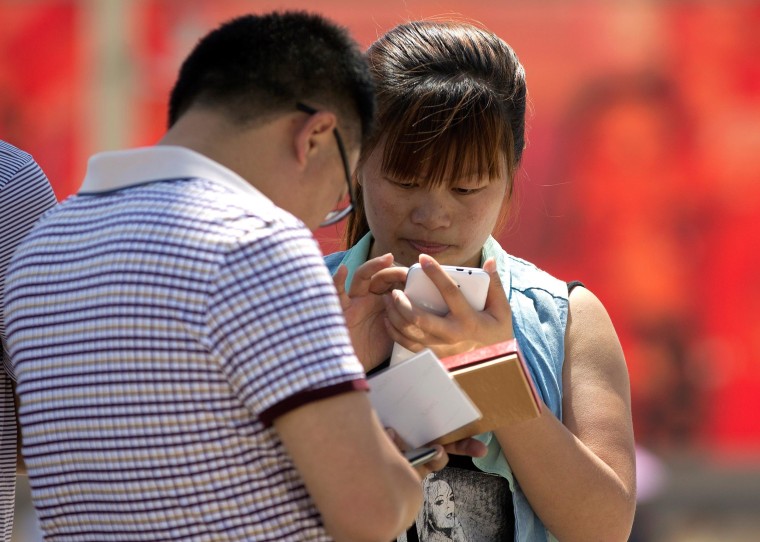BEIJING - China is targeting popular smartphone-based instant messaging services in a month-long campaign to crack down on the spreading of rumors and what it calls infiltration of hostile forces, in the latest move restricting online freedom of expression.
Such services incorporate social media functions that allow users to post photos and updates to their friends, or follow the feeds of companies, social groups or celebrities, and — more worryingly for the government — intellectuals, journalists and activists who comment on politics, law and society. They also post news reports shunned by mainstream media.

Some accounts attract hundreds of thousands of followers.
The official Xinhua News Agency said the crackdown on people spreading rumors and information related to violence, terrorism and pornography started Tuesday and would target public accounts on services including WeChat, run by Tencent Holdings Ltd, which has surged in popularity in the last two years.
People can subscribe to feeds from public accounts without first exchanging greeting messages, as must be done with private ones, which typically link friends and acquaintances.
Tencent and other companies did not answer calls or immediately respond to emailed requests for comment.
Earlier this year, the ruling Communist Party announced the creation of an Internet security group led by President Xi Jinping. Observers say authorities are wary of millions of Chinese with Internet access getting ideas that might threaten the Communist Party system.
Noting that such services had become popular online communication channels, Xinhua said: "Some people have used them to distribute illegal and harmful information, seriously undermining public interests and order in cyberspace."
"We will firmly fight against infiltration from hostile forces at home and abroad," Xinhua quoted a statement from the Cabinet's Internet Information Office as saying.
This is China's first major campaign covering mobile phone messaging platforms, said Mark Natkin, managing director of Marbridge Consulting, a Beijing-based internet and mobile research company.